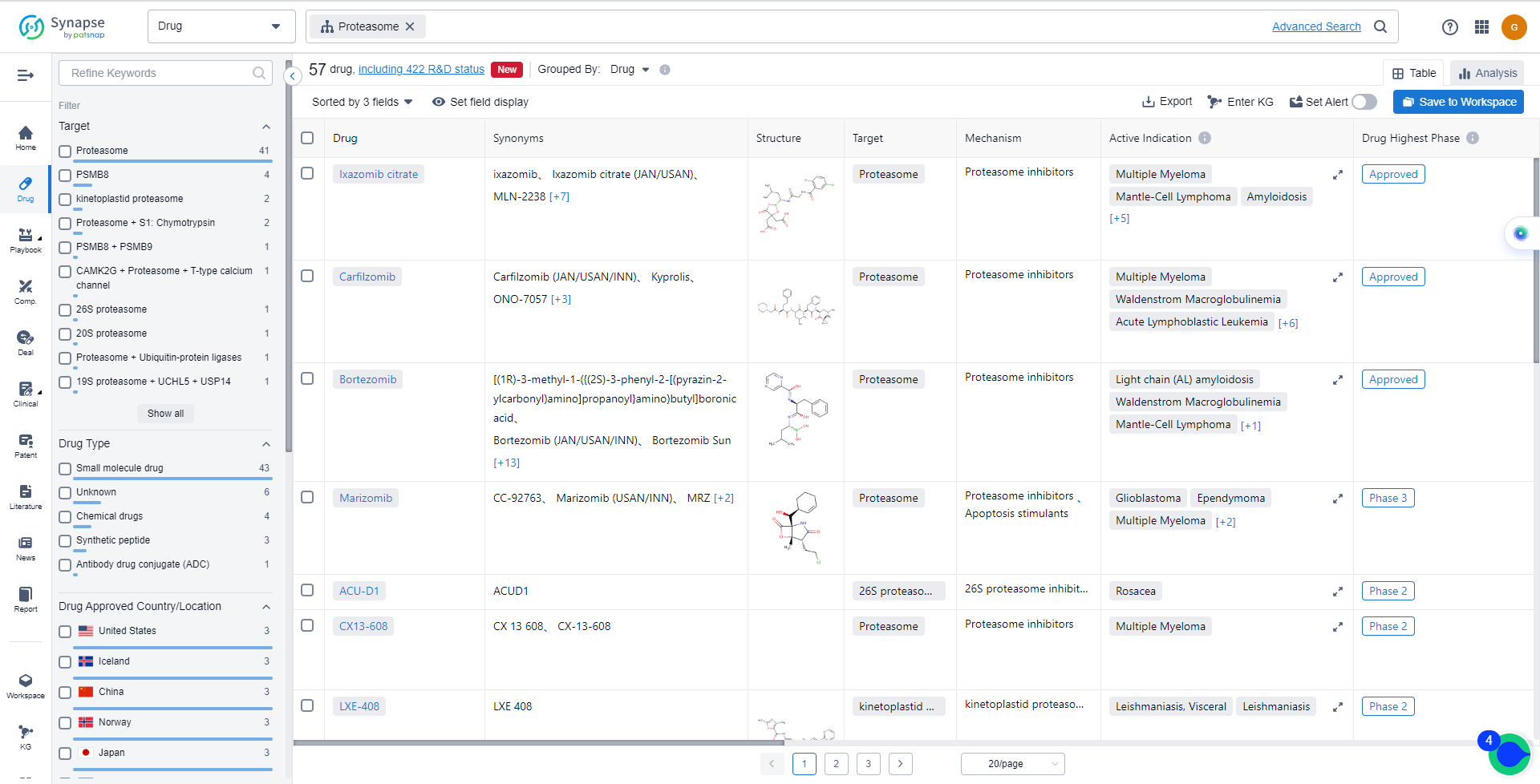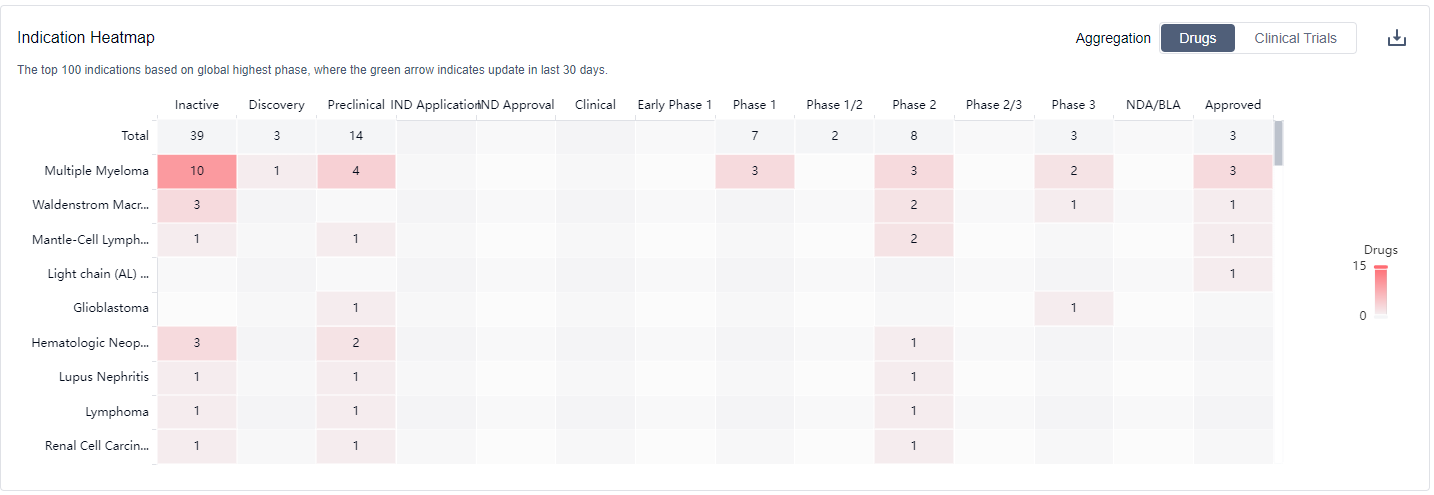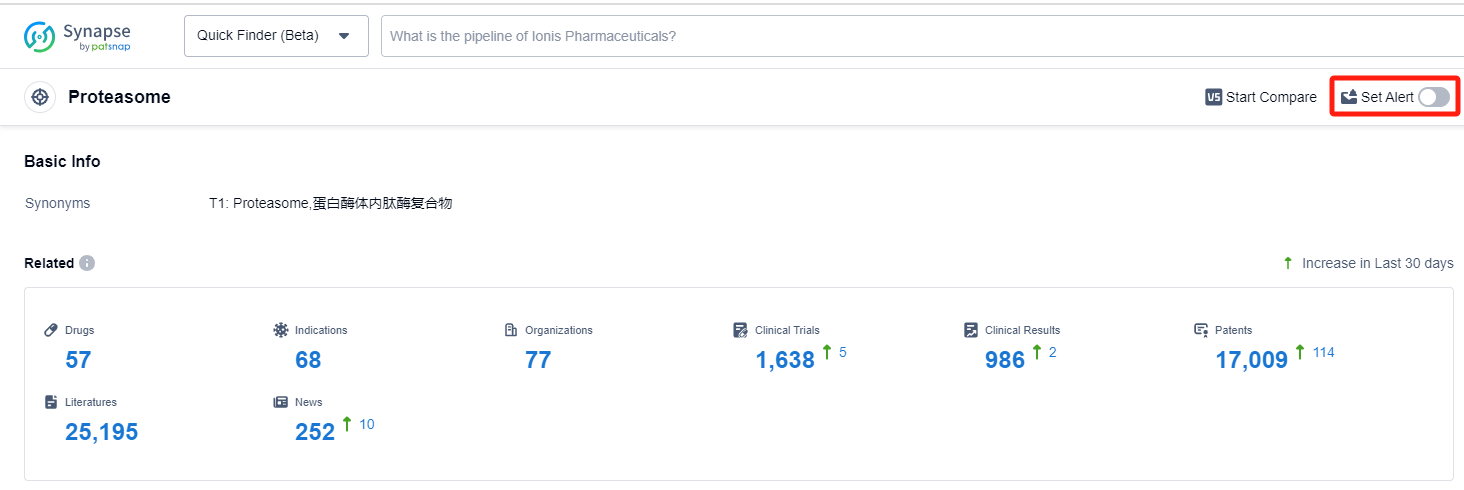Deciphering proteasome Inhibitors and Keeping Up with Their Recent Developments
The proteasome is a crucial component of the cellular machinery responsible for protein degradation in the human body. It acts as a quality control system, ensuring the removal of damaged or misfolded proteins that could be harmful to cells. The proteasome also plays a vital role in regulating various cellular processes, including cell cycle progression, DNA repair, and immune response. Dysfunction of the proteasome has been implicated in several diseases, including cancer, neurodegenerative disorders, and autoimmune conditions. Understanding the role of the proteasome has led to the development of targeted therapies that aim to modulate its activity for therapeutic purposes.
The target Proteasome is a highly competitive area of research and development in the pharmaceutical industry. Takeda Pharmaceutical Co., Ltd., Amgen, Inc., and Pfizer Inc. are the companies growing fastest under this target, with Takeda Pharmaceutical Co., Ltd. having the highest stage of development. Multiple Myeloma is the most common approved indication for drugs targeting the Proteasome.
Small molecule drugs and synthetic peptides are the drug types progressing most rapidly, indicating intense competition around these innovative drugs. The United States, European Union, China, and Japan are the countries/locations developing fastest under the target Proteasome, with notable progress in China.
Overall, the target Proteasome presents a competitive landscape with multiple companies and countries actively involved in research and development. The future development of this target is promising, with ongoing R&D efforts and a diverse range of drug types and indications being explored.
How do they work?
Proteasome inhibitors are a type of medication that interfere with the activity of proteasomes, which are large protein complexes found in cells. Proteasomes play a crucial role in the degradation and recycling of proteins within the cell. By inhibiting the proteasome, these inhibitors disrupt the normal protein degradation process.
From a biomedical perspective, proteasome inhibitors are primarily used in the treatment of certain types of cancer, such as multiple myeloma and mantle cell lymphoma. Cancer cells often have a higher rate of protein turnover and rely on the proteasome pathway for the degradation of proteins involved in cell growth and survival. By inhibiting the proteasome, these inhibitors can lead to the accumulation of unwanted proteins, triggering cell death and inhibiting tumor growth.
Proteasome inhibitors can also have other therapeutic applications beyond cancer treatment. They have been investigated for their potential in treating autoimmune diseases, neurodegenerative disorders, and viral infections. Additionally, proteasome inhibitors have shown promise in enhancing the effectiveness of other anticancer therapies when used in combination.
It is important to note that proteasome inhibitors can have side effects, including gastrointestinal issues, fatigue, low blood cell counts, and peripheral neuropathy. Therefore, their use should be closely monitored by healthcare professionals.
List of proteasome Inhibitors
The currently marketed proteasome inhibitors include:
For more information, please click on the image below.
What are proteasome inhibitors used for?
proteasome inhibitors are used in the treatment of certain types of cancer, such as multiple myeloma and mantle cell lymphoma. For more information, please click on the image below to log in and search.
How to obtain the latest development progress of proteasome inhibitors?
In the Synapse database, you can keep abreast of the latest research and development advances of proteasome inhibitors anywhere and anytime, daily or weekly, through the "Set Alert" function. Click on the image below to embark on a brand new journey of drug discovery!







